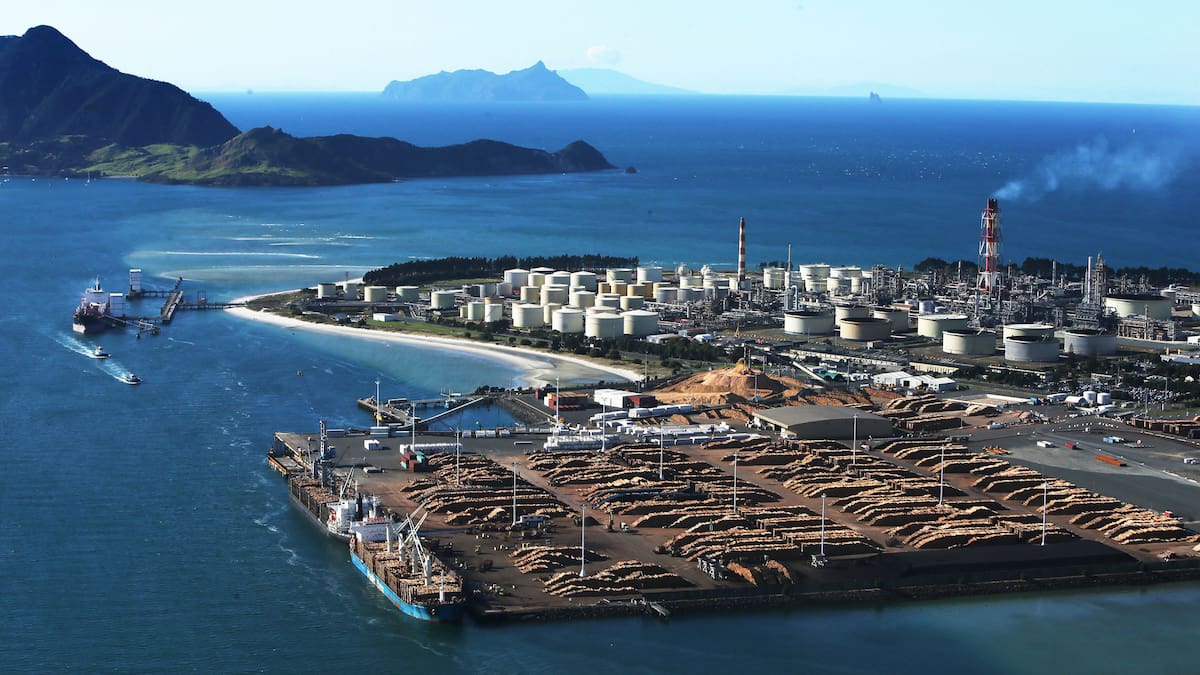The commissioners accepted had they granted consent, there would have been a range of significant positive effects from the development. A Northland Inc study found it would benefit the region’s GDP by $160 million and create 1500 new jobs.
However, the commissioners refused consent due to the scale and extent of the proposed reclamation as it currently stood.
The expansion called for approximately 11.7ha of reclamation and associated coastal structures for a 250m wharf extension to the east of the current port. It would also have involved 1.72 million cubic metres of initial dredging and associated disposal, plus ongoing maintenance dredging.
The construction was expected to take more than three years, including nine months of dredging and two years of pile installation.
Tangata whenua were also strongly opposed to the expansion, with Patuharakeke, Te Parawhau and Ngātiwai all against it.
The commissioners said the adverse effects on cultural values of tāngata whenua, and the loss of recreational values and public access in the coastal marine area, were significant and irreversible.
Those effects were not mitigated by the applicant’s proposed conditions, including not sufficiently maintaining public access to the coastal marine area and the recreation opportunities it offers.

The commissioners noted both the cultural values and access issues were of “national importance” under the Resource Management Act.
Northport – and any person who lodged a submission and didn’t withdraw during the consent process – now has the right to appeal the decision within 15 working days of the decision notice issued on Tuesday.
Northport would not comment on its next steps until it had reviewed the 96-page decision and considered it options.
However, it previously applied for fast-track approval for the expansion.
While it was committed to the resource consent process, it had to apply to be included on Schedule 2 of the Fast-track Approvals Bill in early May, before the decision was released.
‘It’s not economic decisions above all else,’ hapū says
Juliane Chetham from hapū Patuharakeke said the commissioners’ decision is vindication not only of the hapū’s fears about the expansion but its concern about the original port application 25 years ago.
“We feel like, finally, we are being heard and people are making sense of the cultural effects in a contemporary and modern context: it shouldn’t be economic decisions above all else anymore,” she said.
“We can still have an economy but it’s got to be a sustainable one – us looking after the harbour and environment – otherwise we won’t have healthy people or a healthy economy.”
The proposed expansion would have reclaimed the last stretch of beach on the southern harbour entrance, which is used to access pipi beds at Mair Bank and Marsden Bank, Chetham said.
“There was going to be no beach there, just a small small pathway fenced in between the port fence and channel infrastructure – it was not really adequate, not only for us but for the public as well,” she said.
“It might be industrialised, but for us it’s still special and important.”
Fast-track consenting is a concern that Patuharakeke will have to address if it comes to that, Chetham said.
“I’m not sure what the final legislation is going to look like … and what input we can have in that process. We hope the outcome from this hearing will be taken into account in that process.”
Denise Piper is a news reporter for the Northern Advocate, focusing on health and business. She has more than 20 years in journalism and is passionate about covering stories that make a difference.




